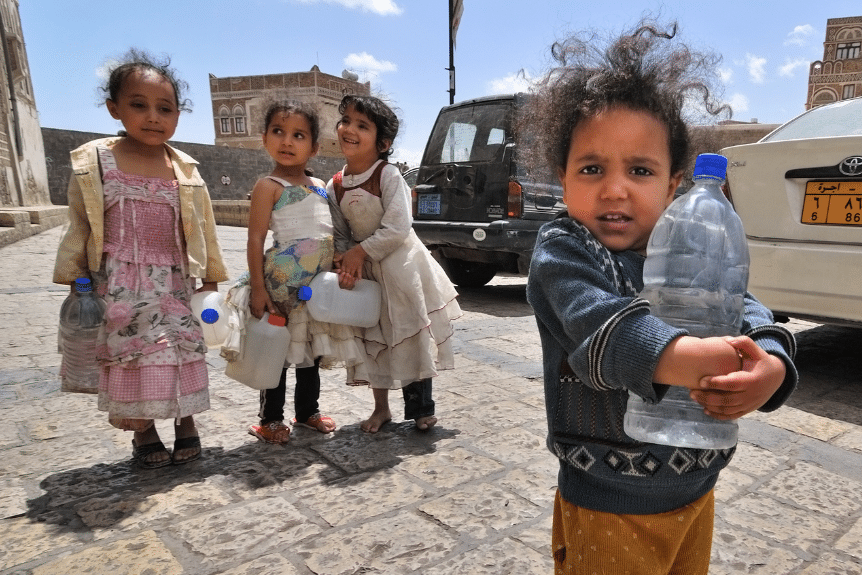Yemen is in turmoil, again. For many Yemenis, the recent airstrikes and conflict inject fresh fear into a seemingly never-ending nightmare. The country had been in civil war for nine years since Houthi insurgents forcibly took control of Yemen’s capital Sana’a.
The people of Yemen were plunged into a living hell. Infrastructure has been devastated. Only 50 per cent^ of the health services and 65 per cent of schools are currently functioning. 4.5 million people are still internally displaced. 17 million Yemenis are food insecure. 21.6 million or two-thirds of the population are in dire need of assistance. The humanitarian crisis is one of the largest in the world.
Women face increasing restrictions to freedom and gender-based violence, yet do not have access to protection and reproductive services. Children have been traumatised from the years of war. Discriminatory norms within the tribal society mean critical aid may not reach some pockets of people, like Christians.
It has been a long dark tunnel, with no foreseeable light at the end of it. But “the light shines in the darkness, and the darkness has not overcome it” (John 1:5).
A ray of hope
A small community radio station has been shining the light of Christ into this oppressive darkness. FEBC’s partner has been airing 60-minute shortwave programs daily, in addition to online streaming and posts on social media. Despite the risks (Yemen ranks fifth in the world as the most dangerous place to be a Christian), the team perseveres.
Topics covered are close to the heart of listeners. One program provides professional advice on health issues. Others address topics for women, who are marginalised in Yemeni society. A popular program has listeners calling in live to discuss current issues. The station also airs a dramatisation of Biblical stories, which is applied to various ethical and moral issues communities face.
A ‘Reality Church’ program mirrors church fellowship for people to listen in and engage with. It reaches non-believers and provides a lifeline to Christians ostracised by family or are unable to attend church.
Program hosts are from the community. Women host the programs for women.
A Yemeni Christian family hosts the Bible study program using the ‘Discover Bible Study’ method, which is popular in disciple-making movements. Family members authentically share what they learn about God and people from the passage, and how they can apply the learning in their lives.
"The people ask, and they ask, and they ask!”
The programs have sparked hope. The station receives around 3,000 responses each month. “The war has taken everything from the people. They are so tired, they have nothing to lose,” a radio host shares. “The people ask, and they ask, and they ask!”
“There is one guy who asked me ‘So, Christ is God?’ I said, ‘Yes. You see, you acknowledge that yourself.’ Step by step, he came to this conclusion and was shocked with himself when he said, ‘That means Jesus, He is God!’”
Finding Faith
Listener Hamid* also asked questions. "My story begins with a post on Facebook that I read by sheer chance,” Hamid said. “The writing style and the message of love it conveyed captured my attention and I ended up reading all the posts on the page.
“I was drawn to this faith which is all about love, peace, redemption, and a beautiful relationship between God and man. I was eager to learn more about the true nature of God, so I began writing to the page hosts, asking for any information they could share about the Christian faith.
“They sent me a Bible, and I began to read it and discovered a loving God who cares about us regardless of our circumstances.
“I used to believe that I was intelligent enough to grasp the reality about God with my own intellect, but in the end, I learned that I couldn’t do so apart from faith.
“Like many others, I’m uncomfortable with the word ‘religion’. Rather than fostering peace and harmony, religion has been generating conflict and war all over the world for thousands of years.
“In my opinion, Christianity is more of a lifestyle than a religion. A Christian’s lifestyle should resemble Jesus as the ultimate example, while pursuing a close relationship with Him. This lifestyle should be seen as an ongoing journey to become like Jesus and embody the characteristics of Christ.
“I’m delighted to be one with Christ now."
^ Statistics from the United Nations.
* Name changed to protect identity and ensure safety of individuals and families.
Join us in bringing hope to people in troubled countries and places hostile to Christianity. Donate now.


